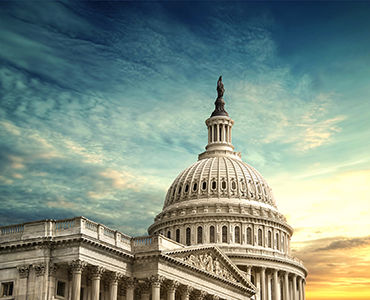State and Local Income Tax FAQ
Following up on IR 2018-178 that it issued on September 5 regarding businesses making payments to charitable or government entities in exchange for state or local tax (SALT) credits, IRS has posted an FAQ to its website on the subject. And, Treasury Secretary Stephen Mnuchin has also issued a statement on the subject.
Background—business expense deduction. Generally, a taxpayer may deduct ordinary and necessary business expenses paid or incurred during the tax year in carrying on a trade or business. (Code Sec. 162(a)) An expense is ordinary if it is customary or usual within a particular trade, business or industry or relates to a common or frequent transaction in the type of business involved. A necessary expense is appropriate and helpful to the operation of the taxpayer’s trade or business.
Background—SALT deduction, generally. For tax years beginning after 2017 and before 2026, the Tax Cuts and Jobs Act (TCJA; P.L. 115-97, 12/22/2017) amended Code Sec. 164(b)(6) to limit individual annual SALT deductions to a maximum of $10,000, with no carryover for taxes paid in excess of that amount. As a result of this change, many taxpayers will not get a full federal income tax deduction for their payments of state and local taxes. The SALT deduction limit doesn’t apply to property taxes paid in connection with a trade or business or in connection with the production of income. (Code Sec. 164(b)(6))
Following the TCJA’s passage, certain state legislatures—specifically, those of high-tax states—implemented workarounds to mitigate the effect of the new Code Sec. 164(b)(6) SALT deduction limit for their residents. One method used was the establishment of charitable funds to which taxpayers can contribute and receive a tax credit in exchange.
In response, IRS issued proposed regs that would effectively eliminate the benefit of these workarounds. See Proposed regs would eliminate benefit of SALT limitation workaround (8/27/2018).
Background—IR 2018-178. On September 5, IRS issued IR 2018-178. The IR provided that taxpayers who make business-related payments to charities or government entities for which they receive SALT credits can continue to claim business expense deductions for these payments. It said that these business deductions are unaffected by the new proposed regs. IRS also stated that the business expense deduction is available to any business taxpayer as long as the payment qualifies as an ordinary and necessary business expense. See Prop regs targeting SALT limitation workarounds don’t affect deductibility of business payments (9/6/2018).
IRS issues FAQ. On September 5, IRS issued an FAQ that provided the following:
Question: Does the proposed regulation governing contributions in exchange for state and local tax credits affect the ability of a business that makes a payment under such a program to deduct the payment as an ordinary and necessary business expense?
Answer: No, the proposed regulation addresses the deductibility of such payments as charitable contributions under Code Sec. 170. It does not affect the availability of a business expense deduction under Code Sec. 162. A business taxpayer making a payment to a charitable or government entity described in Code Sec. 170(c) is generally permitted to deduct the entire payment as an ordinary and necessary business expense under Code Sec. 162 if the payment is made with a business purpose.
Mnuchin makes statement. And, on September 5, Treasury Secretary Steven Mnuchin said: “The IRS clarification makes clear that the longstanding rule allowing businesses to deduct payments to charities as business expenses remains unchanged under the Tax Cuts and Jobs Act. The recent proposed rule concerning the cap on state and local tax deductions has no impact on federal tax benefits for business-related donations to school choice programs.”
 Observation: Note that while IR 2018-178 and the question in the FAQ mention SALT credits, neither the answer to the FAQ nor the statement by Mnuchin make any mention of SALT credits. While it would appear that the FAQ answer implicitly refers to such credits, It isn’t clear whether Mnuchin’s omission was intentional or accidental.
Observation: Note that while IR 2018-178 and the question in the FAQ mention SALT credits, neither the answer to the FAQ nor the statement by Mnuchin make any mention of SALT credits. While it would appear that the FAQ answer implicitly refers to such credits, It isn’t clear whether Mnuchin’s omission was intentional or accidental.
 Observation: None of the recent guidance is clear as to whether and to what extent payments to charities or government entities for which the payor receives SALT credits are “business-related payments” or whether and to what extent such payments “qualify as an ordinary and necessary business expense.”
Observation: None of the recent guidance is clear as to whether and to what extent payments to charities or government entities for which the payor receives SALT credits are “business-related payments” or whether and to what extent such payments “qualify as an ordinary and necessary business expense.”
 Observation: In line with the immediately preceding Observation, it isn’t at all clear, for example, that a business making a donation to a school choice program in return for SALT credits is incurring an ordinary and necessary business expense, notwithstanding Mnuchin’s implication to the contrary.
Observation: In line with the immediately preceding Observation, it isn’t at all clear, for example, that a business making a donation to a school choice program in return for SALT credits is incurring an ordinary and necessary business expense, notwithstanding Mnuchin’s implication to the contrary.
References: For the deduction for state and local taxes, see FTC 2d/FIN ¶ K-4500; United States Tax Reporter ¶ 1644.03. For ordinary and necessary business expenses, see FTC 2d/FIN ¶L-1200; United States Tax Reporter ¶1624.


